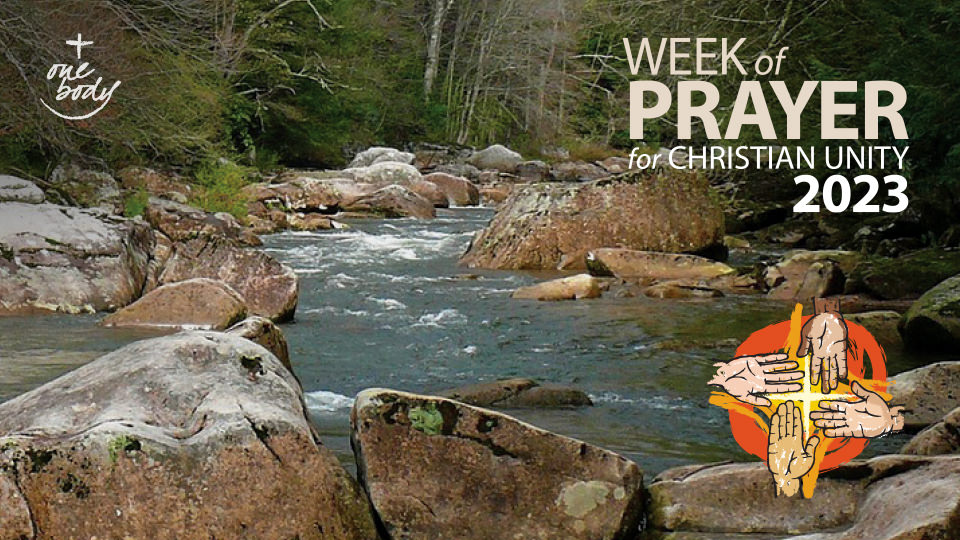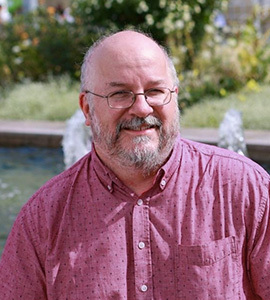



Do good; Seek justice - The Week of Prayer for Christian Unity 2023 | One Body
Nicholas Jesson
Tuesday, December 27, 2022


Do good; Seek justice The Week of Prayer for Christian Unity 2023
by Nicholas Jesson
The Week of Prayer for Christian Unity originated in the 19th century from Evangelical, Anglican, and Roman Catholic initiatives. By 1908 it had become an eight-day mini-season of prayer, observed in various forms and at different times of the year. It was most commonly held between January 18 and 25, the feasts of Peter’s confession and Paul’s conversion. Since 1968, thematic resources and a worship service have been prepared jointly by the Vatican’s Dicastery for Promoting Christian Unity and the World Council of Churches. The 2023 materials were developed together with the Minnesota Council of Churches. See weekofprayer.ca for all resources.All the eyes of the world were on Minneapolis on the day that police officers murdered George Floyd. The cruelty of the officers kneeling on his neck and back while he cried out for mercy was another example of the treatment of Black Americans at the hands of heavily-armed police. This brutality was not the first time or the last, but it was caught on cell phone cameras and appeared almost instantly on news broadcasts everywhere. In Minneapolis, across the U.S., and worldwide, people began to protest and demand justice. As the Minnesota Council of Churches began work on the 2023 theme materials for the Week of Prayer for Christian Unity, they reflected on the murder of George Floyd and the history of racism directed at people of colour in the United States. They also recalled the day in 1862 when 38 members of the Dakota tribe were hanged in Mankato, Minnesota, following the U.S.-Dakota War. As they were led to their deaths, the warriors sang the hymn Wakantanka taku nitawa (Many and Great). The prophet Isaiah lived in Judah in the 8th century BCE, a time of prosperity in the two kingdoms, Israel and Judah. Yet, like other societies with wealth and power, great inequities existed. The rich and the powerful made offerings in the temple, and gained influence in the spiritual and ritual life of the kingdom. But the poor, who could not afford to offer sacrifices, were excluded from civil and religious life. The injustices of the time were not the result of specific choices of the religious or civil leaders but were the outcome of the structure of the society itself. In response, Isaiah called out for God’s justice. He denounced political, social, and religious structures that created and sustained inequity and oppression. He called upon the people to “learn to do good; seek justice, rescue the oppressed, defend the orphan, plead for the widow.” (Isaiah 1:17) There is a lesson for us today in Isaiah’s indictment of the systemic injustice of his day. He understood that God chose Israel and Judah for a holy purpose: that the people and the religious system were called to holiness, righteousness, and justice. His condemnation of the systemic injustice and oppression of his society did not lead him to reject the covenantal promises made by God, but to call the people to renew and restore their own covenantal promises: to care for the widow and the orphan, feed the hungry, clothe the naked, free the prisoner and the oppressed. In response to systemic injustice, he called for a return to the promises of God’s covenant. Similarly, as we consider the role of the Canadian churches in the colonization of Indigenous Peoples and lands, we must recognize the systemic character of injustice and oppression in our society. As we learn of the legacy of intergenerational trauma left by the Residential Schools, we are confronted by the sad reality that for many Indigenous people, the ministry of the church and the proclamation of the Gospel are not good news. The ecumenical movement has always kept the goal of Christian unity at the centre, and the Week of Prayer for Christian Unity remains the highlight of the ecumenical calendar. But the unity of the Church and the unity of the human family must be held together. When people are marginalized by ‘race,’ culture, language, disability, or other human factors, the Christian community is wounded. Racial and other non-doctrinal issues play a crucial role as we reflect theologically on breaking down walls of separation. Therefore prayer, particularly for unity among Christians, is especially significant when it arises from within the struggle for justice and human dignity. The resources for the Week of Prayer include a theological reflection on the text from Isaiah, a worship service, hymn suggestions, and biblical reflections and prayers for each day of the eight-day period. In Canada, a writing team from the Canadian Council of Churches has prepared additional materials for children, youth, and campus ministry. Translations and adaptations of these resources are encouraged whenever they are used. The 2023 worship resource, based on the text from Isaiah 1:12-18, includes water and stones as symbols that connect the Christian reflection on unity to the Indigenous spiritual experience. For some Indigenous traditions, water represents life, and stones represent the ground upon which many generations have stood. For Christians, water represents baptism into new life. Following the homily or sermon, two to three people will be invited to tell stories of racial injustice within the local community and of ways that Christian unity can serve the overcoming of injustice. After each story, the speaker may place a stone at the foot of a cross or a candle, the symbol of Christ the cornerstone. When planning this part of the service, careful thought should be given to the potential for triggering further trauma for those who have experienced racism. It is essential, however, to tell stories of racial injustice, because truth-telling and education are the first steps towards a society of justice and equity. Isaiah warns us that God is not satisfied by continued offerings without repentance and conversion. “I cannot endure solemn assemblies with iniquity.... When you stretch out your hands, I will hide my eyes from you; even though you make many prayers, I will not listen; your hands are full of blood.” (Isaiah 1:13-15) But it doesn’t end with despair. God instructs us to wash ourselves, to remove the evil of our ways: “cease to do evil, learn to do good.... Though your sins are like scarlet, they shall be like snow; though they are red like crimson, they shall become like wool.” (v. 16-18) Only when we have changed our ways and transformed our Church and society will the poor and the marginalized no longer be oppressed. In our prayer for Christian unity, “let us be open to God’s presence in all our encounters with each other as we seek to be transformed, to dismantle the systems of oppression, and to heal the sins of racism. Together let us engage in the struggle for justice in our society. We all belong to Christ."[1] ___________________________________________________________________ [1] "Introduction to the Theme of the Year 2023: Do good; seek justice (Isaiah 1:17)”. Resources for the Week of Prayer for Christian Unity and throughout the Year (Rome: Dicastery for Promoting Christian Unity; Geneva: World Council of Churches, 2022). https://weekofprayer.ca
 Nicholas Jesson is the ecumenical officer for the Archdiocese of Regina, former ecumenical officer for the Diocese of Saskatoon, and former executive director of the Prairie Centre for Ecumenism. He is a member of the Anglican-Roman Catholic Dialogue in Canada, editor of the Canadian Council of Churches’ Margaret O’Gara Ecumenical Dialogues Collection, and editor of the Anglican-Roman Catholic Dialogue archive IARCCUM.org.
Nicholas Jesson is the ecumenical officer for the Archdiocese of Regina, former ecumenical officer for the Diocese of Saskatoon, and former executive director of the Prairie Centre for Ecumenism. He is a member of the Anglican-Roman Catholic Dialogue in Canada, editor of the Canadian Council of Churches’ Margaret O’Gara Ecumenical Dialogues Collection, and editor of the Anglican-Roman Catholic Dialogue archive IARCCUM.org.Related Articles:
<<
SUPPORT LABEL
$50
$100
$150
$250
OTHER AMOUNT
DONATE
Receive our newsletters
Stay Connected
Receive our newsletters

Stay Connected







